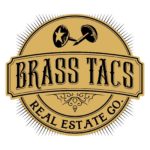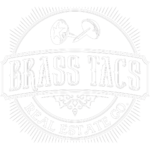While choosing a house is the fun part on the path to home ownership, the nuts-and-bolts task that will get you into that house is determining which financing is the best deal for you.
Here are some basics about what’s available in terms of a mortgage.
A conventional mortgage is issued by a private lender and is not guaranteed by the federal government. Some conventional loans may be backed by Fannie Mae or Freddie Mac, two shareholder-owned companies operating under a congressional charter established in 1938. These companies buy and sell conventional mortgages. For a buyer with a good credit score, reliable work history, low debt-to-income ratio, and the ability to make a down payment (the amount will vary by lender; some are as low as 3 percent), a conventional mortgage is a good choice because interest rates tend to be less. However, some lenders may require borrowers who put down less than 20 percent to pay private mortgage insurance (PMI) until they reach 20 percent equity. PMI ranges on average from 0.58 to 1.86 percent of the original loan amount per year and therefore increases the monthly payment on a home.
If your credit score and/or ability to make a large down payment is an issue, the federal government does provide some options for low- to moderate-income buyers who might not quality for a conventional loan. The government does not fund loans, but it does back them through these programs:
- Federal Housing Administration (FHA) loans: Borrowers can have lower credits scores for these types of government-insured loans, most of which require a down payment of 3.5 percent. The downside of FHA loans is that borrowers are required to pay an Up-Front Mortgage Insurance Premium at closing (the cost can be rolled into the loan or paid in cash) as well as a monthly Mortgage Insurance Premium for 11 years or for the entire term of the loan.
- S. Department of Veterans Affairs (VA) loans: For active duty military members and veterans, these typically low-interest loans do not require a down payment, credit score or mortgage insurance. They do have a funding fee which is calculated as a percentage of the loan cost and can be included in the loan amount.
The other aspect to consider with a mortgage is whether to have a loan with a fixed rate or an adjustable rate. With a fixed-rate mortgage, a buyer is locked into one interest rate for the term of the loan, which would be usually 15 to 30 years, depending on how high a monthly mortgage a person can afford. This is appealing to homeowners looking to live in their home for a long period of time with the surety of a fixed payment. The interest rate of an adjustable-rate mortgage (ARM) will vary depending on the market. Depending on the lender, rates stay the same for the first several years of a mortgage and then would be adjusted. For homeowners who plan to stay in their homes for a few years could benefit from a lower rate of interest with an ARM. The disadvantage is that the rate could go up, thus upping the monthly mortgage payment.
Buying a home is usually the largest purchase a person will make, so it is wise to do some homework. Interview potential lenders who can guide you to the mortgage that best suits your financial goals and budget.


